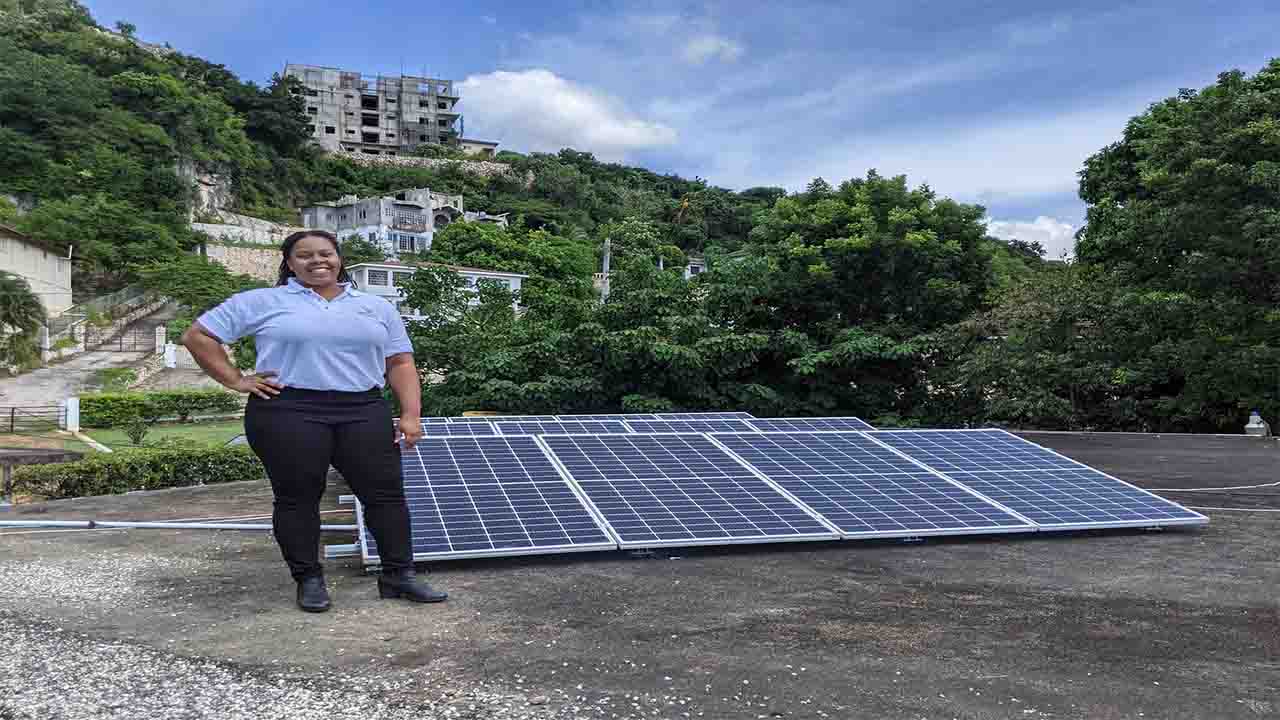Jamaica, a vibrant island nation in the Caribbean, has set its sights on achieving renewable energy independence through a solar power revolution. Faced with the challenges of high energy costs, fossil fuel dependence, and the urgent need to combat climate change, Jamaica has embarked on a remarkable journey towards harnessing its abundant solar resources and transforming its energy landscape.
Historically, Jamaica has heavily relied on imported fossil fuels for its energy needs, which not only strained its economy but also contributed to greenhouse gas emissions and environmental degradation. Recognizing the urgency to shift towards cleaner and more sustainable energy sources, the Jamaican government, in collaboration with international partners and stakeholders, has implemented bold initiatives to promote solar power adoption across the island.
One of the key drivers of Jamaica’s solar power revolution is the implementation of the National Energy Policy, which sets the ambitious target of achieving 50% of the country’s energy from renewable sources by 2030. To meet this goal, the government has implemented a range of policies and incentives to encourage investment in solar energy projects. These include tax breaks, duty exemptions, and net metering programs that allow solar energy system owners to sell excess electricity back to the grid. Such incentives have attracted private investors and individuals alike, spurring the rapid growth of the solar industry in Jamaica.
Jamaica’s sunny climate, with an average of over 2,800 hours of sunlight per year, provides an ideal environment for solar energy generation. The island has vast untapped solar potential, and efforts have been made to maximize the use of this renewable resource. Large-scale solar farms have been established across the island, harnessing the power of photovoltaic panels to generate clean electricity. One notable example is the Paradise Park Solar Farm, located in Westmoreland Parish, which is one of the largest solar installations in the Caribbean, with a capacity of 51 megawatts.
Beyond utility-scale solar projects, Jamaica has also encouraged the adoption of solar energy at the residential and community levels. The government’s Net Zero Energy Building Program promotes the construction of energy-efficient homes equipped with rooftop solar panels, enabling households to generate their own clean electricity and reduce their dependence on the grid. Community solar initiatives have also emerged, allowing multiple households to share the benefits of a centralized solar installation, even if their individual properties are not suitable for solar panel installation.
Jamaica’s solar power revolution extends beyond electricity generation. The government has recognized the potential of solar energy in other sectors, such as water heating. Solar water heaters have been widely adopted, reducing the energy demand for heating water and providing cost savings for households and businesses. Additionally, the transportation sector is being targeted for solar-powered solutions, with plans to introduce solar charging stations for electric vehicles, further reducing reliance on fossil fuels.
The benefits of Jamaica’s solar power revolution are manifold. First and foremost, it offers the opportunity to achieve energy independence, reducing the country’s vulnerability to volatile oil prices and external energy shocks. It also contributes to a cleaner environment by reducing greenhouse gas emissions and air pollution associated with fossil fuel combustion. The transition to solar power creates employment opportunities, spurring economic growth, and supporting the development of a sustainable and resilient energy sector.
However, Jamaica’s journey towards renewable energy independence is not without challenges. The initial cost of solar infrastructure can be a barrier for some individuals and businesses, requiring innovative financing mechanisms to make solar energy accessible to all. The intermittency of solar power generation also poses a challenge, necessitating the development of energy storage technologies and grid integration solutions to ensure a stable and reliable energy supply. Collaboration and knowledge sharing with international partners, as well as continuous research and development, will be crucial in overcoming these hurdles.
In conclusion, Jamaica’s solar power revolution represents a transformative shift towards renewable energy independence. By capitalizing on its abundant solar resources, the island nation is paving the way for a sustainable and resilient future. Through supportive policies, incentives, and investments, Jamaica is demonstrating that it is possible for small island states to transition to clean energy and reduce their carbon footprint. The solar power revolution in Jamaica serves as an inspiration for other nations, showcasing the potential for renewable energy to drive economic growth, enhance energy security, and combat climate change.








